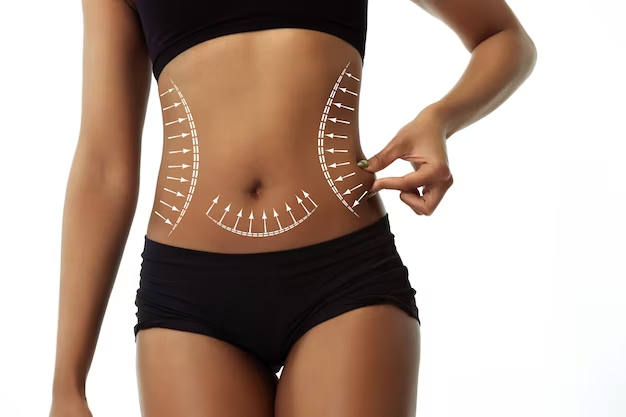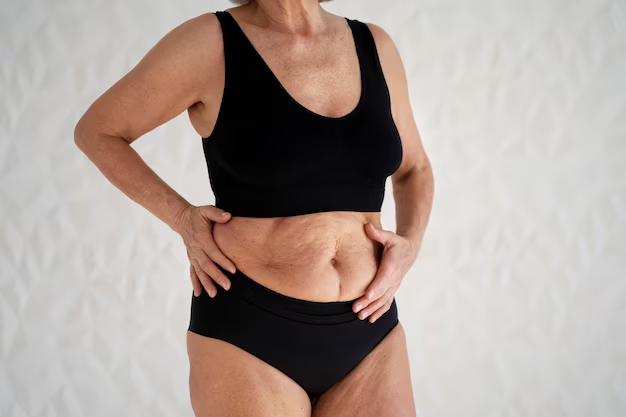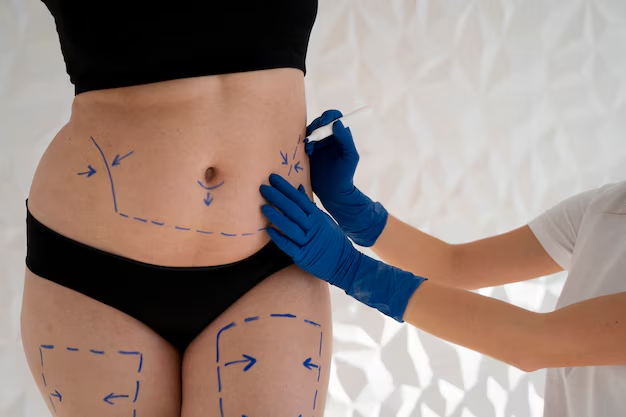What Is A Tummy Tuck Surgery
Tummy Tuck, also known as abdominoplasty, is a body contouring plastic surgery. Most of the time, it’s confused with a weight loss surgery, but it is essentially a body contouring surgery where the loose skin around the abdomen is tightened. To be more specific, this surgical procedure aims to tighten the abdominal muscle wall and eliminate wrinkles, sags, and skin appendages by tightening the skin in the abdomen and waist.
Skin sagging around the abdomen area may occur after losing a significant amount of weight. This weight loss may be the result of being pregnant, following a strict diet and exercising, having weight loss surgery, or having liposuction. Sometimes, the tummy tuck surgery can be combined with liposuction if your plastic surgeon approves. With this combined procedure, it is possible to have a tighter abdomen area.
There are two ways to conduct Tummy Tuck cosmetic surgery. These are:


Partial Abdominoplasty
Partial abdominoplasty, also known as a mini tummy tuck procedure, is similar to a full abdominoplasty. The only difference is that a mini tummy tuck only aims at the parts under the belly button. It is best suited for those with skin appendages or sagging in the lower part of the abdomen, below the navel, and a few fat blocks. Most of the time, a partial abdominoplasty is more about the skin tightening since the abdominal wall fixation is not always needed.
The best part of this surgery is that it helps you get rid of your caesarian scars. Furthermore, it does not leave any visible tummy tuck scar since the surgery is made around the belly button.
Full Abdominoplasty
Full abdominoplasty, known as a complete or total abdominoplasty, is a plastic surgery where the entire abdomen area is treated (both under and above the belly button). Unlike a mini tummy tuck, the stretched abdominal muscles under the skin are tightened in a full abdominoplasty, along with tightening the sagging and excess skin. A full abdominoplasty surgery can be combined with liposuction to remove the accumulated fat on the area to provide a firmer appearance.
CANDIDATES FOR TUMMY TUCK
Many people desire to have tummy tuck surgery, but there are some conditions that a patient must meet to have the surgery. Candidates are limited to the following list:
- Those with fatty lumps or skin appendages in the abdominal area.
- Those with ideal weight, so the fat mass does not exceed 30% of the average weight.
- Women who suffer from cracks or ceaserian scars caused by pregnancy.
- Those with sagging skin in the abdominal area after losing a lot of weight.
- Those who are free of diseases such as hypertension, diabetes, or immunodeficiency.
Abdominoplasty is a procedure designed to tighten the stretched abdominal muscles and the wall. The surgery does not aim weight loss.
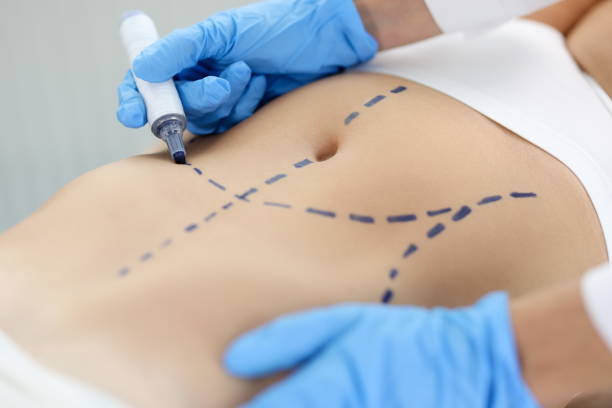

Pre-Tummy Tuck Surgery Tips
There are many tips to follow before undergoing tummy tuck surgery to get the desired results. They are as follows:
- Ensure to do good research and have the surgery with a board certified plastic surgeon.
- Refrain from having any blood thinners such as alcohol, green tea, or vitamin combinations, for they contain vitamin E and vitamin A to avoid bleeding during the surgery.
- Refrain from having stimulants such as caffeine or Arabic coffee because the patient who drinks stimulants is difficult to be anesthetized.
- Stop having medications that cause blood dilution for a week before the surgery.
- Make sure to eat healthy and balanced for a sufficient period before the tummy tuck surgery to avoid complications during the operation.
- Refrain from smoking for a month since it affects oxygen levels in the blood, reducing the required rate of oxygen in the blood, which is needed for recovery. Keep in mind that it is better to get a tummy tuck surgery if you are not planning future pregnancies.
Stages Of Tummy Tuck
Tummy Tuck, or Abdominoplasty, is conducted through a set of stages, which are summarized as follows:
First Stage: Conduction Clinical Examinations — The plastic surgeon examines the abdomen and waist area and explains all the procedures necessary to obtain a tightened abdomen.
Second Stage: Conduction of the Necessary Tests: Blood tests are conducted to identify sugar levels to ensure that a person is free from diseases that hinder the tummy tuck surgery, such as hypertension, diabetes, or immunodeficiency.
Third Stage: Preparing the Patient: The medical team sterilizes the abdominal area, and then the anesthesiologist anesthetizes the patient with general anesthesia.
Fourth Stage: Breaking Down Fat — In the surgeries where the abdominoplasty is combined with liposuction, the surgeon breaks down the fat in the abdomen and waist areas, which is then suctioned by liposuction.
Fifth Stage: Tightening the Abdominal Wall: The doctor makes a simple incision to tighten the abdominal wall and stretch muscles to get a drawn belly wall.
Sixth Stage: Bandaging —The doctor puts on a fixed rubber band, called a bandage, to reduce swelling.
The patient needs to stay in the hospital for one to two days at most to make sure that their health is good and to ensure a full recovery.
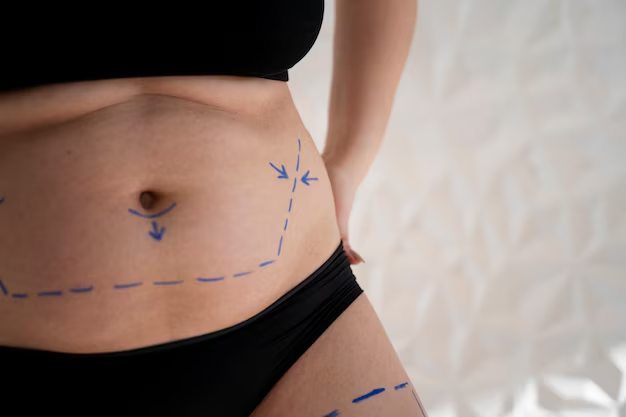
Post-Tummy Tuck Surgery Tips
After the surgery, the surgeon dictates some critical instructions, and the patient must adhere to all instructions to get the best tummy tuck results and a healthy healing process. Some of these instructions are as follows:
- Keep wearing a medical abdominal corset for eight weeks to help reduce swelling and accelerate the process of recovery.
- Refrain from strenuous activity or exhausting exercises for a maximum of two months.
- Keep refraining from smoking for two months after the surgery so as not to affect the recovery.
- Do not carry heavy objects for eight weeks to avoid damaging tissues.
- Refrain from using moisturizing creams on the abdomen and waist to avoid allergies.
- Sleep with a specific curved position dictated by the doctor according to the patient’s condition.
- Refrain from lying in a flat position.
- A woman must avoid pregnancy after the tummy tuck procedure.
- Refrain from swimming for at least two months.
- Be careful not to remove the drain for a week to eliminate all the fluids in the abdominal area.
